
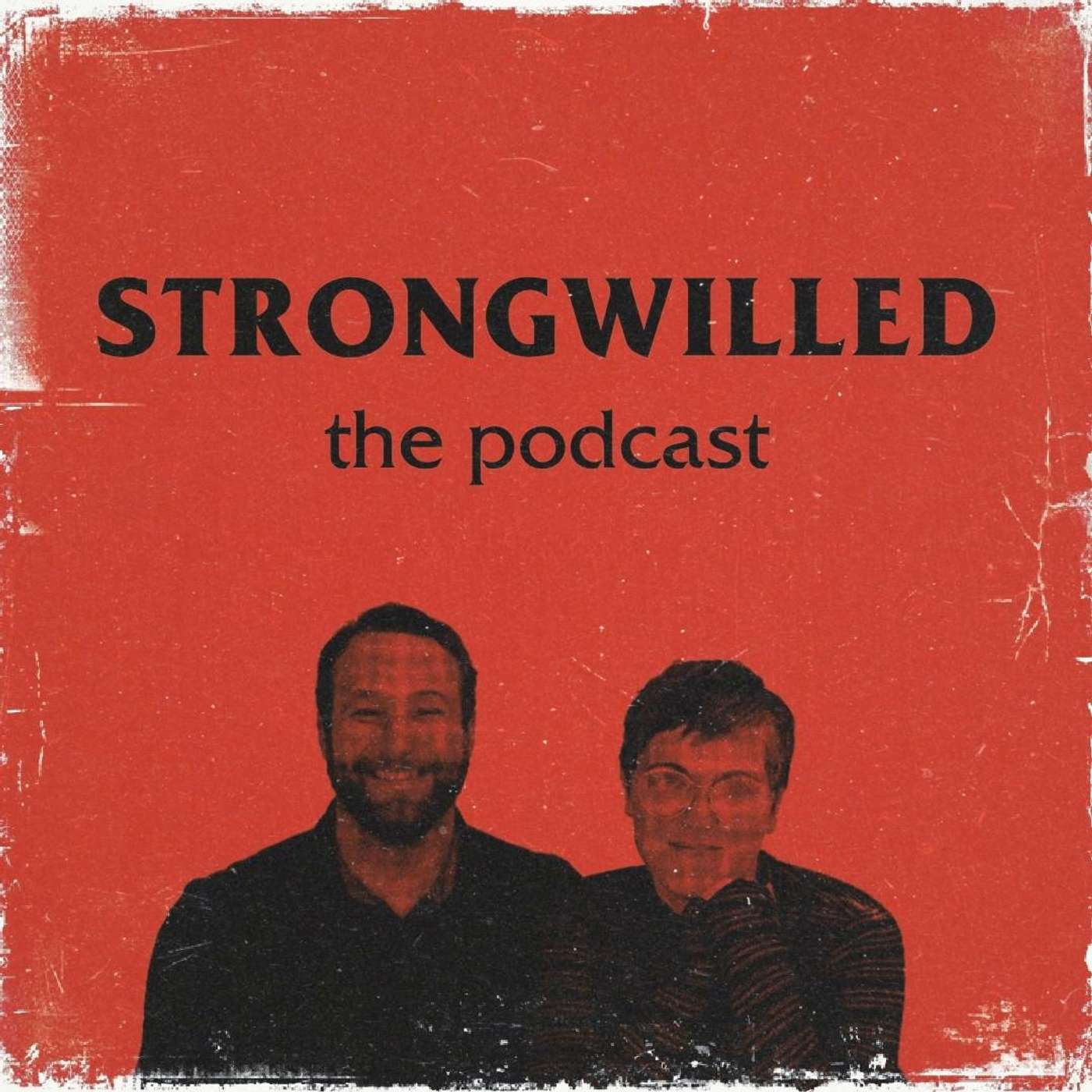
STRONGWILLED
Area Code
DL and Krispin Mayfield host conversations about the personal and political impacts of Religious Authoritarian Parenting.
Episodes
Mentioned books
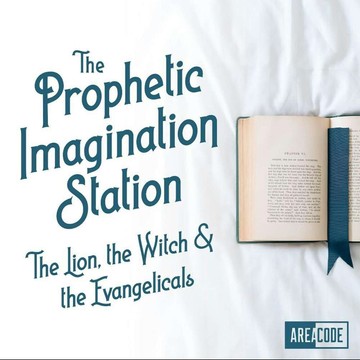
Jan 4, 2021 • 57min
Interview with Torri Williams Douglass about The Magicians’ Nephew (Ep 11 of The Lion, the Witch & the Evangelicals)
Torri Williams Douglass is a writer, speaker, educator, and activist. She is the creator of White Homework which is a curriculum designed to help people create their own personalized antiracism plan. The courses were developed as a response to the hundreds of requests she got from individuals asking, “I don’t want to be racist, but what do I DO?” Prior to this, she worked in higher ed, doing recruitment for Underrepresented Minorities in STEM. She lives with her family in Portland, Oregon. Also she’s a great twitter follow. “The Chronicles of Narnia was required reading for homeschoolers.”Anyone else remember Abeka homeschool curriculum?! D.L. wrote this piece on reading Little House on the Prairie with kids. "Aslan is a drama queen"… (remember how Mr. Whitaker, drama queen for the patriarchy in Season 4 of Prophetic Imagination Station?)Rereading our childhood favorites actually is a good place to start reading with a decolonize lens. We are already comfortable with them - but it takes a lot of extra time. Krispin grew up with Hannah Barbarra Bible videos like these. No art is perfect - but sometimes it’s not worth the energy and time it takes to wade through it.Krispin mentions Why Are All the Black Kids Sitting Together in the Cafeteria by Beverly Daniel Tatum
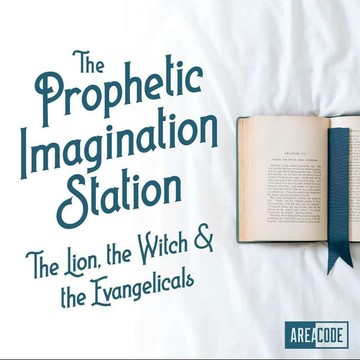
Dec 28, 2020 • 56min
Q & A with Matt Mikalatos (Recording of Live Patreon Event)
Matt Mikalatos took more time to talk with us about Narnia and C.S. Lewis, with lots of interesting parts we haven't covered in our series - like an eco-critical reading of Narnia, guessing Lewis' enneagram number, Planet Narnia, and how Lewis wrote letters to children explaining the Narnia series in ways he never made public.Thank you Matt and patrons for a wonderful evening! You can sign up and be a part of events like these, and more, at www.patreon.com/dlmayfield
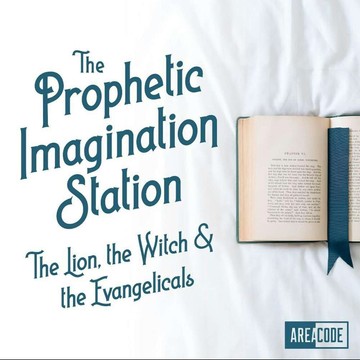
Dec 14, 2020 • 51min
Interview with Paul Pastor (Ep 10 of The Lion, the Witch & the Evangelicals)
Paul Pastor is an editor and writer, and has published a collection of non-ficiton essays about the Holy Spirit called The Face of the Deep and some books of prayers & meditations called The Listening Day Volume 1 and Volume 2. You can find him on Twitter. Or go to his website and write him a letter!Become a patreon of the podcast at www.patreon.com/dlmayfield and join us for a Narnia Q&A Wednesday night, Dec 16 (6pm pacific / 9pm eastern). The Highlights:Aslan’s How: a house put together by Dr. Garry Friesan for male students attending Multnomah University (Multnomah Bible College when we went there).Paul mentions the best box set being this one and we agree. Lewis’ favorite author/theologian was named George McDonald. He was a Victorian era preacher and fantasy writer known for his heretical views. Phantastes by MacDonald, Lewis said, “baptized his imagination”. The Silver Chair synopsis. The Silver Chair also includes one of the best characters in Lewis’ canon, PuddleglumMichael Ward wrote a book on the Narnia stories being linked to medieval conceptions of various planets. Check out his website, Planet Narnia. Why hasn’t The Silver Chair been made into a major motion picture?The Silver Chair corresponds to Luna, or the moon. The Dark Night of the Soul by St. John of the Cross is an initiatory moment.Holy Darkness is different and holds richness because they dwell in obscurity or shadow, which is present in Godself. The Scriptures say that God dwells in deep darkness.
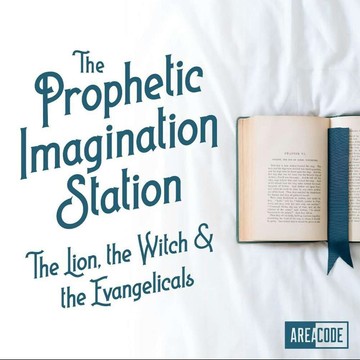
Dec 7, 2020 • 40min
Interview with Alireza Shafiee-Nasab (Ep 9 of the Lion, the Witch & the Evangelicals)
Alireza Shafiee-Nasab, born in 1990 in Dezful, Iran, is an Iranian translator, literary editor and teacher. You can follow him Instagram or visit his website http://shafieenasab.ir.He holds an MA degree in English literature from the University of Tehran, with a thesis entitled “Christianized Archetypes in The Chronicles of Narnia”, in which he argues that the psychological ideas of Carl Gustav Jung might have influenced Lewis’s The Chronicles of Narnia, while Lewis, as a devout Christian, gives these ideas a Christian touch, modifying them wherever they contradict Christian doctrines. He is currently translating Fernando Aramburu’s Patria into PersianCalormen is the country south of Narnia in the books--appearing most prominently in The Horse and His Boy and also The Last Battle. Calormen is obviously an Eastern/Oriental culture compared to Narnia’s northern European culture. Calormen culturally, according to Shafiee-Nasab, is a mixture of Arabic and Persian and Turkish elements: long beards and dark skin and upturned shoes. “Aslan” comes from a Turkish word which means lion. It’s also the name of one of the characters in Arabian Nights, a work which greatly influenced C. S. Lewis. Other influences from this book show up in Narnia, including naming the boy prince Caspian after the Caspian Sea.Lewis was interested in psychology but was not a fan of Freud. But he found Carl Jung to have a more humane version of psychology. Shafiee-Nasab believes Lewis’ interest in Jung contributes to some of the archetypes in his work, including the figures of Aslan and Tash--and how people end up responding to a false Aslan because of their mental image of his. Lewis was also influenced by Dante, and possibly by his depiction of Islam in in works. Along with that, in old Persian Tash (the God of death in the Narnia world) means fire. How do we deal with the orientalism/racism underlying works like The Horse and His Boy? One thing we can do is wonder why there was such an appetite for works like Narnia while Persian/Islamic epics continue to be ignored. One such example is that one of the most famous Irianian books ever written--The Epic of Kings--still has yet to be completely translated into English.
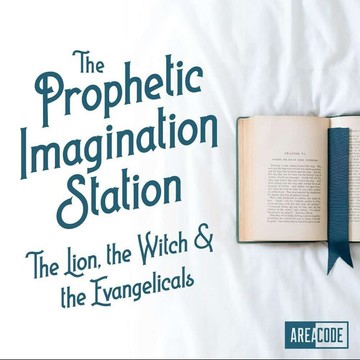
Nov 23, 2020 • 48min
Interview with Kat Coffin about the Problem of Susan (Ep 8 of the Lion, the Witch & the Evangelicals)
Kat Coffin is a musician and an academic specializing in the works of C.S. Lewis and gender theory. Before you listen to the podcast, maybe check out this wonderful summary Kat Coffin wrote on The Problem of Susan here.Or read this quick Twitter thread summary Here’s the passage in The Last Battle that makes people so upset about Susan not getting into Aslan’s Country. JK Rowling on Susan Pevensie and Lewis: “There comes a point where Susan, who was the older girl, is lost to Narnia because she becomes interested in lipstick. She’s become irreligious basically because she found sex. I have a big problem with that.”Neil Gaiman wrote a short story called The Problem of Susan (which we do not necessarily recommend reading as it is . . . intense.)C.S. Lewis was a lot like Susan!Lewis eventually became friends with Dorothy L Sayers and then befriended and married Joy Davidman. An American communist from Brooklyn! Till We Have Faces--Lewis’ last novel, which was basically co-written with Joy DavidmanA Grief Observed--Lewis’ book on his marriage“CS Lewis is not as evangelical as evangelicals want him to be but he’s not as progressive as I want him to be.” -- Kat CoffinGeorge MacDonald, one of Lewis’ main literary mentors, was a universalist. Krispin mentions The Evangelical Universalist, by Robin Parry, which was originally published under the pen name Gregory MacDonald, as a nod to George MacDonald. Shadowlands is the film about Lewis’ life and marriage to Joy. As Kat Coffin points out, there are elements of it that have been edited to fit the intended audience, so keep that in mind!Find Kat on Twitter Instagram Blog
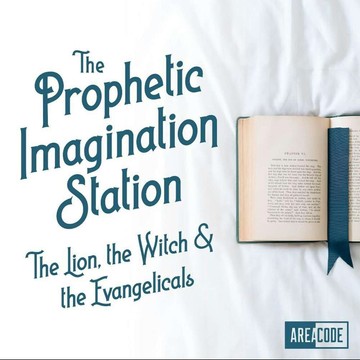
Nov 16, 2020 • 46min
Interview with Matt Mikalatos (Ep 7 of the Lion, the Witch & the Evangelicals)
Episode 7: Interview with Matt Mikalatos on The Voyage of the Dawn TreaderMatt Mikalatos is the author of the Sunlit Lands fantasy trilogy, starting with The Crescent Stone. He also writes a bi-weekly column about C.S. Lewis at Tor.com. You can connect with him at www.mikalatos.com.Matt writes about a wide variety of Narnia-related content for Tor. Here is a link to his piece on Eustace and spiritual formation. Matt describes The Voyage of the Dawn Treader as a travelogue or spiritual pilgrimage novel. Books which influenced Lewis in this genre include”The journeys of at BenedictThe Travels of Sir John MandevilleDante’s ParadisoWhat is the deal with Eustace? Matt says that Lewis was saying that intense secularism is the main problem for Eustace--he doesn’t read the write books, believe in magic, or even know what a dragon is!Matt mentions the Jewish ritual bath called Mikvah. For more information on that, go here. Matt mentions Mark Charles and his numerous books and talks on white supremacy. We are big fans of Mark Charles, go check him out!You can find Matt Mikalatos on Twitter and Facebook and if you are interested in his books (which you should be by now!) go check out The Sunlit Lands.
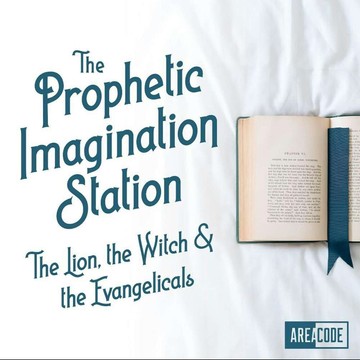
Nov 2, 2020 • 59min
Interview with Emily Austin (Ep 6 of the Lion, the Witch & the Evangelicals)
In the introduction, DL mentions reading the book Bonhoeffer's Black Jesus by Reggie Williams. We highly recommend it (Go listen to this podcast episode if you want a taste of the book). Emily Metcalf is a scholar and artist who focuses on Tolkein and Lewis in both areas. You can find her website with links to her shop here (we highly recommend checking out her Tolkien inspired watercolors!). In today’s interview, she discusses with DL a recent paper she wrote on Lewis’ view of patriotism. C.S. Lewis wrote often about the four loves. Go here if you want to learn more about them. Emily describes the various forms of patriotism as understood by Lewis, from what he considers a “normal” love of country all the way to toxic nationalism. In her paper, Emily describes Lewis’s understanding of the five degrees of patriotism as: “love of home, veneration of national/cultural history, assumption of superiority, rights to power, and finally, self destruction.”Just in case you can’t remember the plot of Prince Caspian, use this as a refresher. One of the twitter handles mentioned is Diverse Tolkien. Go check it out! You can find Emily Metcalf (Emily Austin is her artist name) on Facebook, Twitter, and Instagram. Follow The Prophetic Imagination Station podcast on Twitter or Instagram, or join the fun over at Patreon!
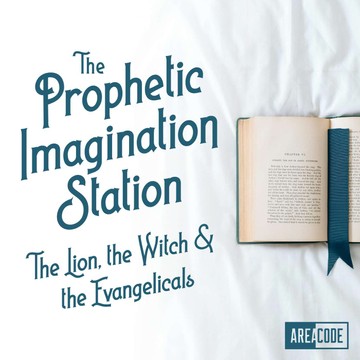
Oct 19, 2020 • 42min
The Lion, the Witch & the Wardrobe (BBC vs. Disney)
After watching productions of The Lion, the Witch & the Wardrobe by both BBC (1988) and Disney (2004), Krispin and Danielle discuss the differences, as well as the story itself. For a stroll down memory lane, you can watch the BBC version on youtube. Sign up for our patreon here to hear our patreon-only episode next week about Focus on the Family and how they’ve influenced evangelicals to vote republican for decades. Thanks to Rich Villodas for his Dear Wormwood tweet.
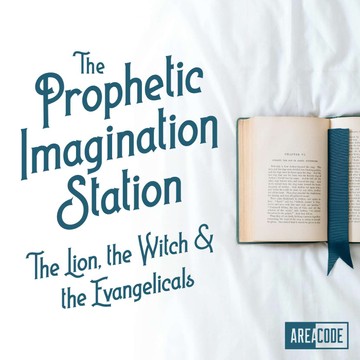
Oct 12, 2020 • 38min
Interview with Mako Nagasawa
This episode is mostly about what the Stone Table/Death of Aslan meant in the Chronicles of Narnia. Buckle up for a fascinating deep dive into atonement theories and evangelical theology!Mako Nagasawa served a Spanish-speaking ministry to Mexican immigrants in East Palo Alto, CA and afterward, worked for two startup companies trying to bring technology and jobs to inner city communities. Since 2000, Mako, his wife Ming, and their two children John and Zoe have lived among friends in a Christian intentional community house in a black and brown neighborhood in Dorchester. Mako has done campus ministry since 2001 and founded The Anástasis Center in 2014.Mako’s website (with lots of links and articles!)Mako’s FB group: Healing Atonement and Restorative Justice.He helped develop a financial curriculum called Lazarus at the Gate, as well as a small group curriculum aboutCheck out Mako’s interview with Almost Heretical about atonement theories and how Penal Substitutionary Atonement has impacted US politics.Mako has a whole academic paper on C.S. Lewis’ Theory of Atonement, that you can read here! (also, check out Mako’s take on theology and Harry Potter here and Lord of the Rings here)Mere Christianity quote: Only a bad person needs to repent only a good person can repent perfectly, Jesus is the only one who could push human nature where it needs to be pushed. (12 min). We discuss “survival emotions” of anxiety and guilt, relief and gratitude evoked by Penal Substitution Atonement. (14 min)Athanasius: On Incarnation (CS Lewis wrote the introduction, which you can read here). Jesus died to burn away the corrupt nature of humanity. It’s a medical paradigm, not a legal paradigm.
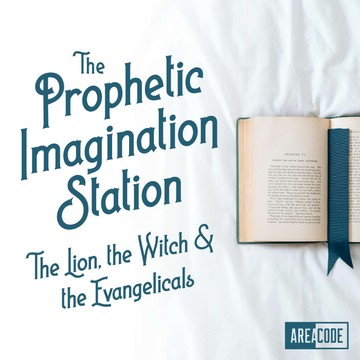
Oct 5, 2020 • 48min
Interview with Sonya Cronin
Important note: I (D.L.) say Dr. Cronin is at the University of Florida when in fact she teaches at Florida State University. Me and my West Coast bias/ignorance showing--sorry about that!Dr. Sonya Cronin teaches classes both on the Hebrew Scriptures and Fantasy Literature--which makes her the perfect guest for this podcast. You can visit this site to learn more about her, including her books (and she is currently working on one about the gospel of Mark!). We reference the recent controversy surrounding JK Rowling and her recent anti-trans public statements. You can learn more about this situation here. Krispin references his interview with Connie Baker about interacting with authors who are problematic. You can listen to his interview with her about spiritual abuse here. Dr. Cronin references Philip Pullman, saying “Fantasy is a safe space to learn the virtues of the world, in a way that is not quite ‘thou shall’. ‘Once a upon a time’ does something for us that ‘thou shall and thou shalt not’ just doesn’t do.” (11:54)When talking about Lewis and Tolkein they must be set in their context, the 1950s--including their portrayals of women. Lewis was considered safe for evangelicals because before he ever wrote fantasy he wrote apologetics--so we knew exactly what he believed. (25 min)Harry was created a wizard — the idea of being created to be something is very much connected to the Christian tradition. Christian responses to Harry Potter: Richard Abanes wrote Harry Potter and the Bible: The Menace behind the MagikJohn Granger is a Christian who says we SHOULD read these books. - 35min


